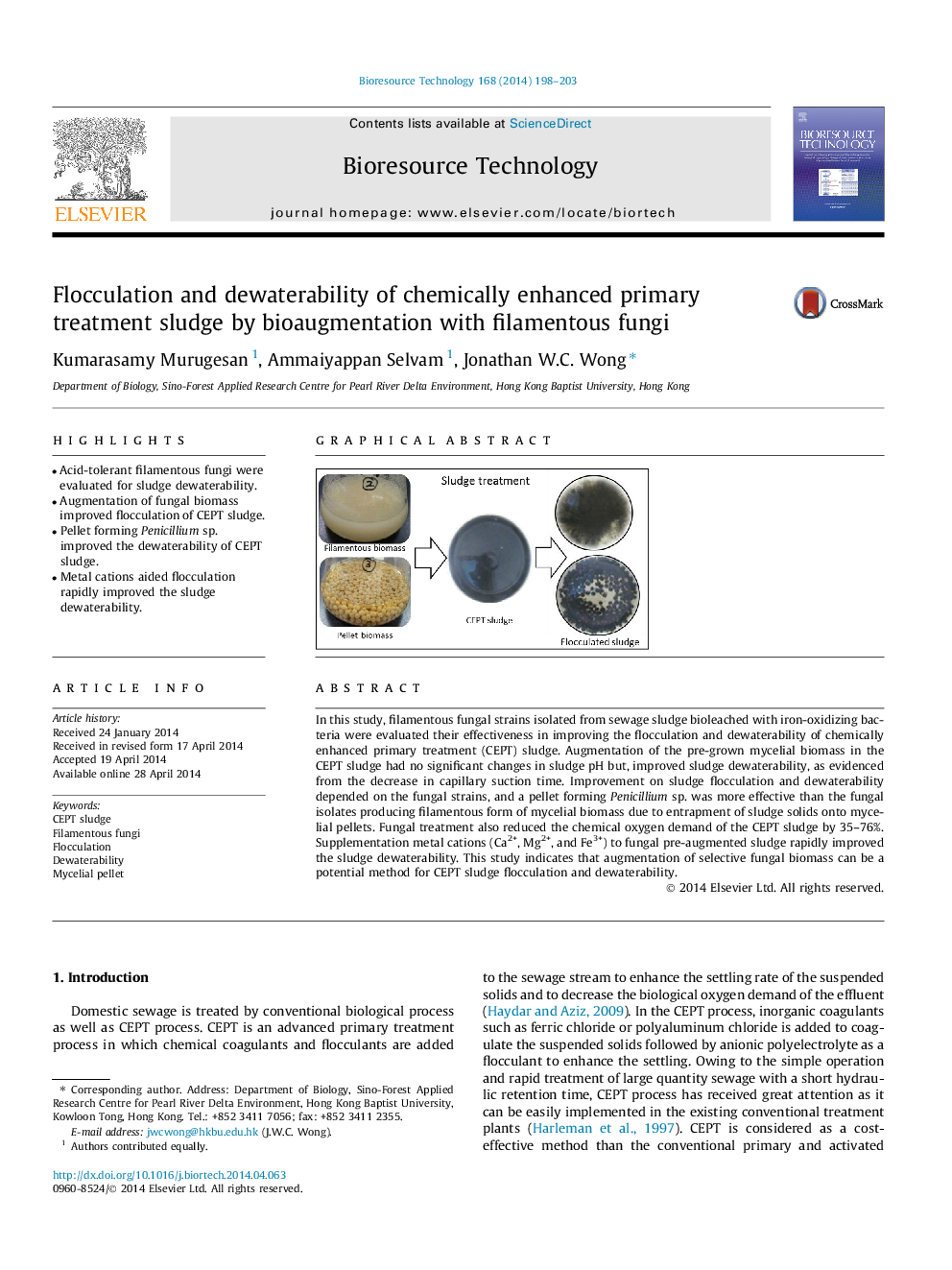| Article ID | Journal | Published Year | Pages | File Type |
|---|---|---|---|---|
| 680586 | Bioresource Technology | 2014 | 6 Pages |
•Acid-tolerant filamentous fungi were evaluated for sludge dewaterability.•Augmentation of fungal biomass improved flocculation of CEPT sludge.•Pellet forming Penicillium sp. improved the dewaterability of CEPT sludge.•Metal cations aided flocculation rapidly improved the sludge dewaterability.
In this study, filamentous fungal strains isolated from sewage sludge bioleached with iron-oxidizing bacteria were evaluated their effectiveness in improving the flocculation and dewaterability of chemically enhanced primary treatment (CEPT) sludge. Augmentation of the pre-grown mycelial biomass in the CEPT sludge had no significant changes in sludge pH but, improved sludge dewaterability, as evidenced from the decrease in capillary suction time. Improvement on sludge flocculation and dewaterability depended on the fungal strains, and a pellet forming Penicillium sp. was more effective than the fungal isolates producing filamentous form of mycelial biomass due to entrapment of sludge solids onto mycelial pellets. Fungal treatment also reduced the chemical oxygen demand of the CEPT sludge by 35–76%. Supplementation metal cations (Ca2+, Mg2+, and Fe3+) to fungal pre-augmented sludge rapidly improved the sludge dewaterability. This study indicates that augmentation of selective fungal biomass can be a potential method for CEPT sludge flocculation and dewaterability.
Graphical abstractFigure optionsDownload full-size imageDownload as PowerPoint slide
